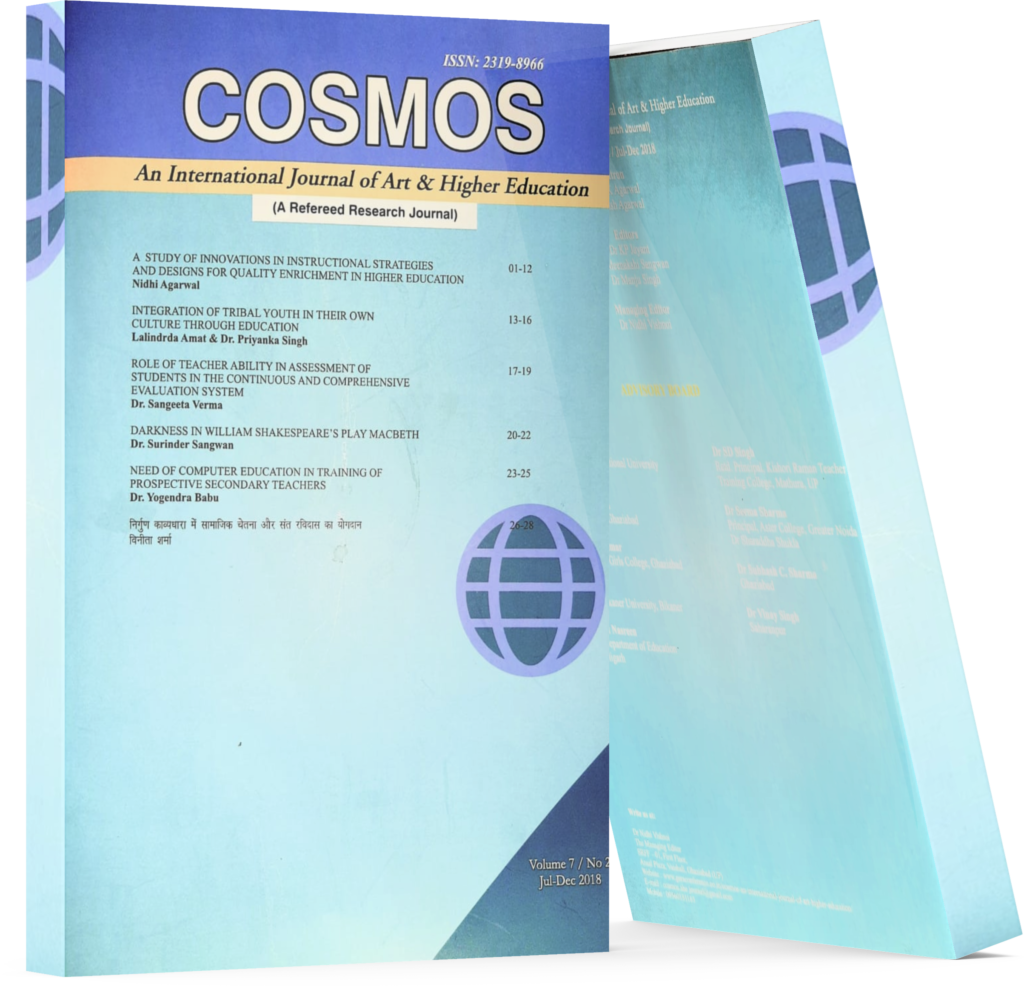Development Of Instructional Modules In World Literature For Open And Distance Education
Keywords:
Instructional Modules, Open and Distance Education, ODE, World LiteratureAbstract
Education must keep with the times, which in turn creates a paradigm shift in the educational system and pedagogy. Classrooms become borderless, open, interactive, virtual, and global. This is open and distance education (ODE). Sharma (2006) found out that the core strength of DE (distance education) is that it can globalize the education system by bringing the best available teachers and experts to any corner of the world to provide the latest information with the help of communication technology. DE is a philosophy that translates media into resources to give the right of learning to every learner during student, working, and retirement life. The main objective of the study was to develop modules for the online instruction of world literature on prospective graduate students of the future open and distance education. The developmental method of research was utilized which was very useful in the conduct of the study.
Downloads
References
Bernardo, (2004). “Master’s Thesis: A proposed reading skillbook for the intermediate level at the University of Regina Carmeli”, University of Regina Carmeli, Malolos City.
Bilton-Ward, (1997). “An educator’s guide”, (Retrieved from
http://www.nwresd.k12.or.us/pdfs/virtual tch.pdf on May 2, 2017).
Cohen, (1995). “Instructional alignment”, In: Anderson LW, ed. International encyclopedia of teaching and teacher education. Tarrytown, NY.
Dooley, et. al., (2017). Retrieved from http://alec2.tamu.edu/grad_courses/611/Modul es/Module3/Lesson1A_1B/instructionaldesign. pdf on May 2, 2017).
Emotin-Bucjan, (2011). “Development and Validation of Modules in English 2: Writing in the Discipline”. National Peer-Reviewed Journal, 6, ISSN 20123981, Retrieved from
http://www.eisrjc.com/documents/Developmen t_and_Validation_of_Modules_1325756635.p df on May 14, 2017.
Eusebio, (2004). “Master’s Thesis: A proposed reading skillbook for the pupils in the primary level”, University of Regina Carmeli, Malolos City.
Hirumi, A., (2002). “Student-Centered, Technology-Rich Learning Environments (SCenTRLE): Operationalizing Constructivist Approaches to Teaching and Learning” Journal of Technology and Teacher Education, 10(4), 497-537, Norfolk, VA: Society for Information Technology & Teacher Education. Retrieved from
https://www.learntechlib.org/p/9524 on May 9, 2017.
Sies, (2017). “Definition of Teaching Modules”, Retrieved from
center/resources/resource19.html on May 1, 2017. The Foundations of Outcomes-Based Education Chapter 2 (Retrieved from http://uir.unisa.ac.za/bitstream/handle/10500/1
/03chapter2.pdf on May 14, 2017).
Lawson & Askell-Williams, (2007). “Outcomes-based education”, Centre for the Analysis of Educational Futures: Flinders University”, Retrieved from
http://www.ais.sa.edu.au/__files/f/2128/Outco mes%20Based%20Education.pdf on May 14, 2017.
Macarandang, (2009). “Evaluation of a Proposed set of Modules in Principles and Methods of Teaching”. E-International Scientific Research Journal, ISSN: 2094-1749, 1(1), Retrieved from
http://www.eisrjc.com/documents/Evaluation_ Of_A_Proposed_Set_Of_Modules_132593221 9.pdf on May 14, 2017.
(2019). “Primer on the Quality Assurance and Institutional Sustainability Assessment of HEIs”, Annex 4 of Guidelines for the Implementation of CMO 46, series 2012 on the
Policy-Standard to Enhance Quality Assurance (QA) in Philippine Higher Education through
Outcomesbased and Typology-based QA. Retrieved from
http://www.ched.gov.ph/wpcontent/uploads/20 14/06/Handbook%20on%20Typology%20Out comes.pdf on May 14, 2017.
Salve-Opina, (2014). “The Development and Validation of Online Learning Modules for College English”. American International Journal of Contemporary Research, 4(2). Retrieved from
http://www.aijcrnet.com/journals/Vol_4_No_2 _February_2014/12.pdf on May 7, 2017. 13. Smith & Ragan, (2017). Retrieved from http://www.dhd4train.net/pdf/books/tech/3.pdf on April 28, 2017.
Spady, (2006). “Learning, leading and living outside the box: compelling insights from transformational research”, Address to the Annual Conference of the Australian Primary Principal’s Association, Alice Springs July 2006. Retrieved from
http://www.appa.asn.au/cms/uploads/events/sp adykeynote2ohts.pdf, on May 1, 2017.
Spady, (1994). “Outcome-based education: Critical issues and answers”. American Association of School Administrators, Arlington, VA.
Spady, (1998). “Paradigm lost: reclaiming America’s educational future”, American Association of School Administrators, Arlington, VA.

